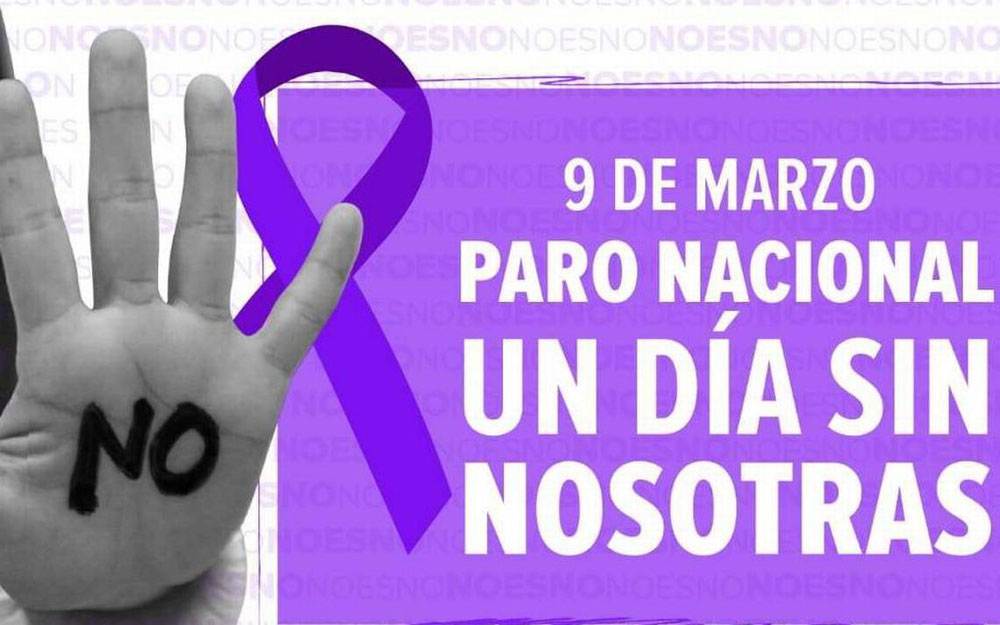
February 26, 2020; New York Times
An alliance of women’s groups in Mexico is calling for that country’s women to observe a 24-hour strike on Monday, March 9th to protest mounting violence Mexican women face. The strike is also timed to coincide with International Women’s Day, which takes place one day before; large marches are planned for that preceding Sunday. The action is being promoted under the hashtag #UnDíaSinNosotras—“A Day Without Us”—and the New York Times reports that the movement “has gained extraordinary momentum across this country of more than 120 million, with wide-ranging buy-in from the public and private sectors, civic groups, religious leaders and many, if not most, women.”
The support has cut across the boundaries of class, ethnicity, wealth and politics that fracture this nation, and has given organizers hope that this might be not just a monumental event but also a watershed moment in the modern history of Mexico.
Two recent murders, a 25-year-old woman and a seven-year-old girl, tipped an already active feminist movement into high gear. Arussi Unda, the spokeswoman for Las Brujas del Mar, a feminist collective in the state of Veracruz, said that group “was shaken to its core” by the brutality of the murders. “We asked each other, ‘What else has to happen for this to change?’”
As in other countries, high levels of violence against women are seen as part and parcel of the more general subjugation of women in society. Thus was born the idea of a national strike—a daylong disappearance of the country’s women. Support for the action was not long in coming, as Mexico’s Business Coordinating Council (Consejo Coordinador Empresarial) urged companies to support participating employees.
Sign up for our free newsletters
Subscribe to NPQ's newsletters to have our top stories delivered directly to your inbox.
By signing up, you agree to our privacy policy and terms of use, and to receive messages from NPQ and our partners.
“Without a doubt, the response of the authorities in the past few years has not been adequate or sufficient,” the council said, referring to the crisis of violence against women. “But we have all failed as a society.”
“It is time for solidarity and empathy,” the statement continued, “but also time for responsibility and actions. Each and every one of us must do our part.”
Governments at every level have also expressed their support for employees who will participate.
Claudia Sheinbaum, the mayor of Mexico City, said she had instructed all the department heads in municipal government not to penalize any female employees who stayed away from work on the day of the strike. She said the city employed about 150,000 women.
The organizers are hoping that the strike will jumpstart a national conversation on women’s rights that will end in concrete action on many fronts.—Ruth McCambridge













